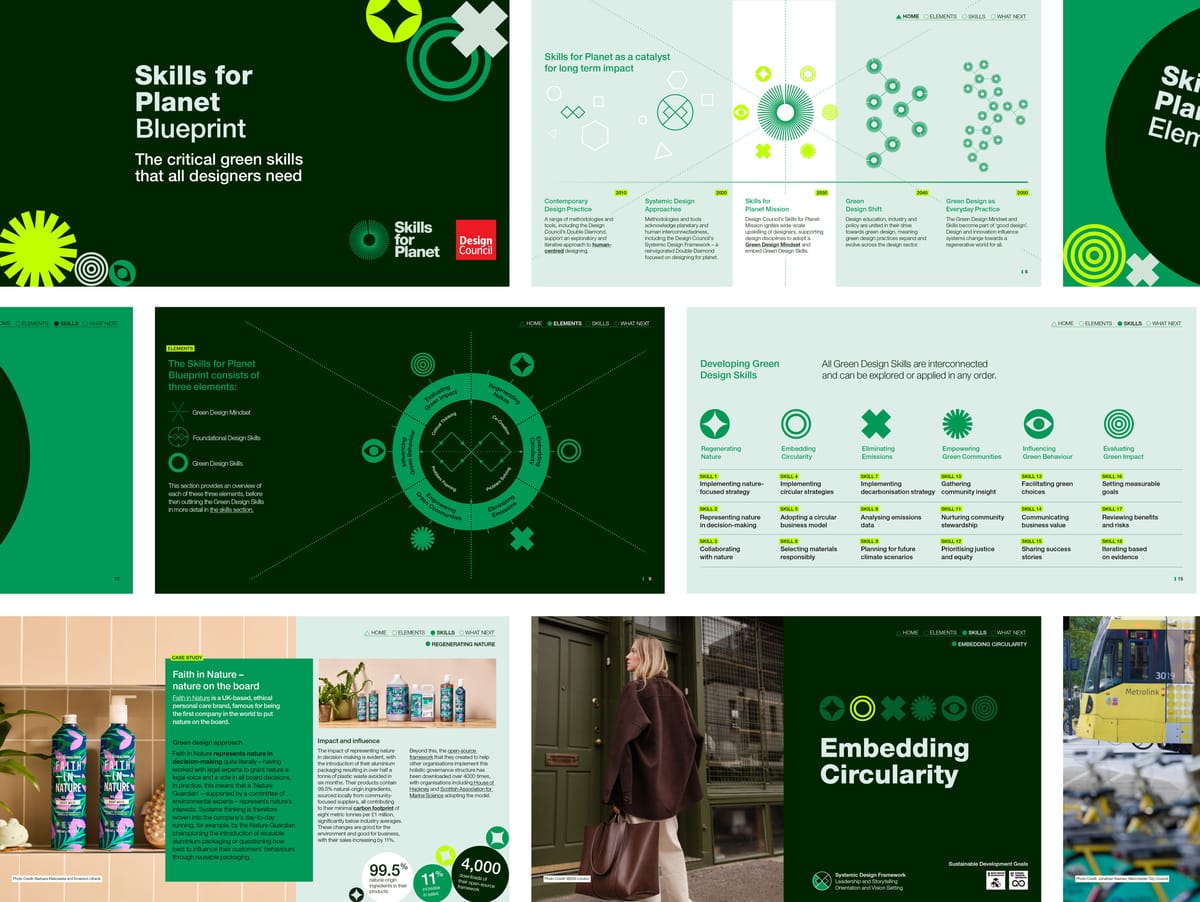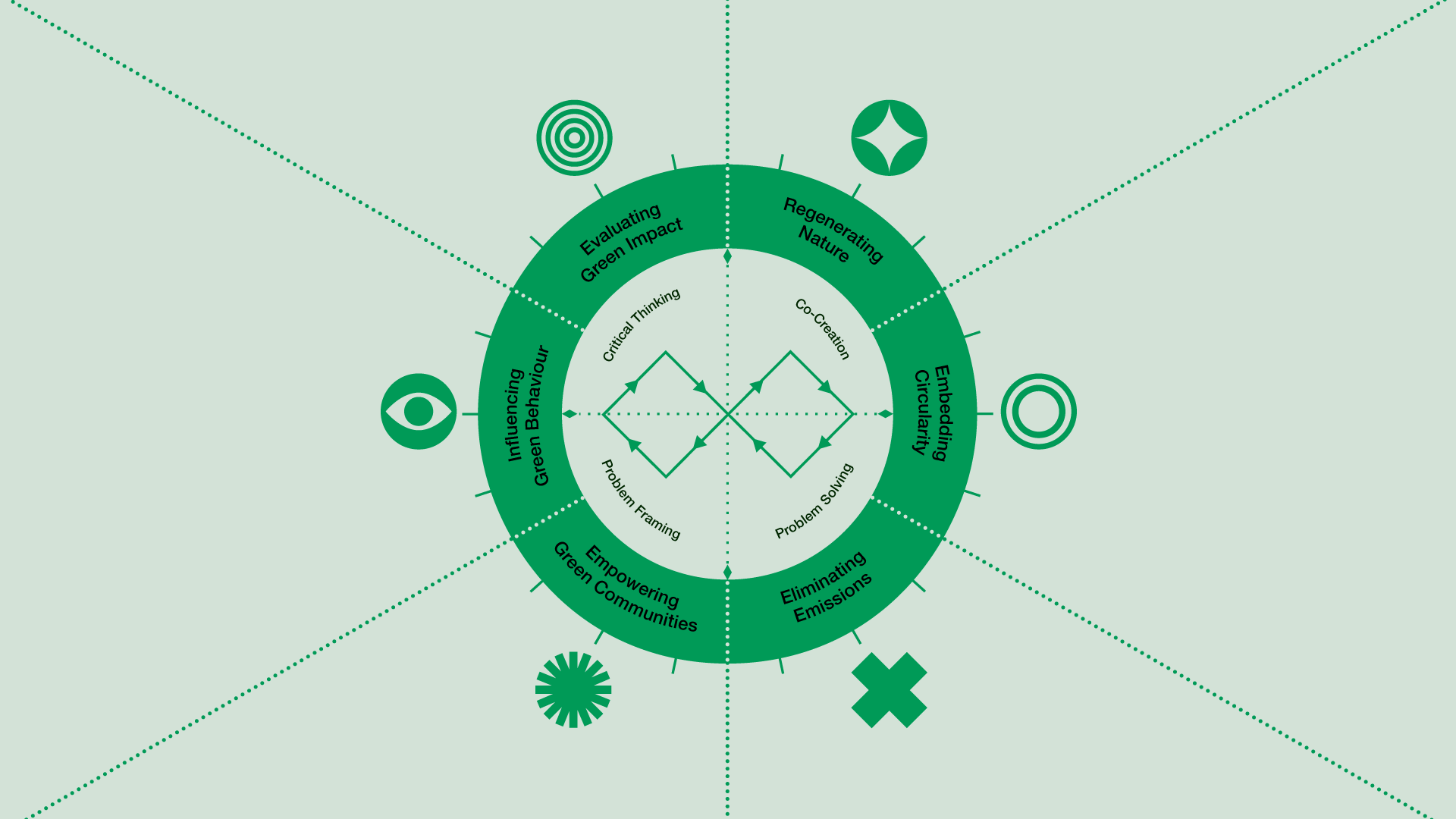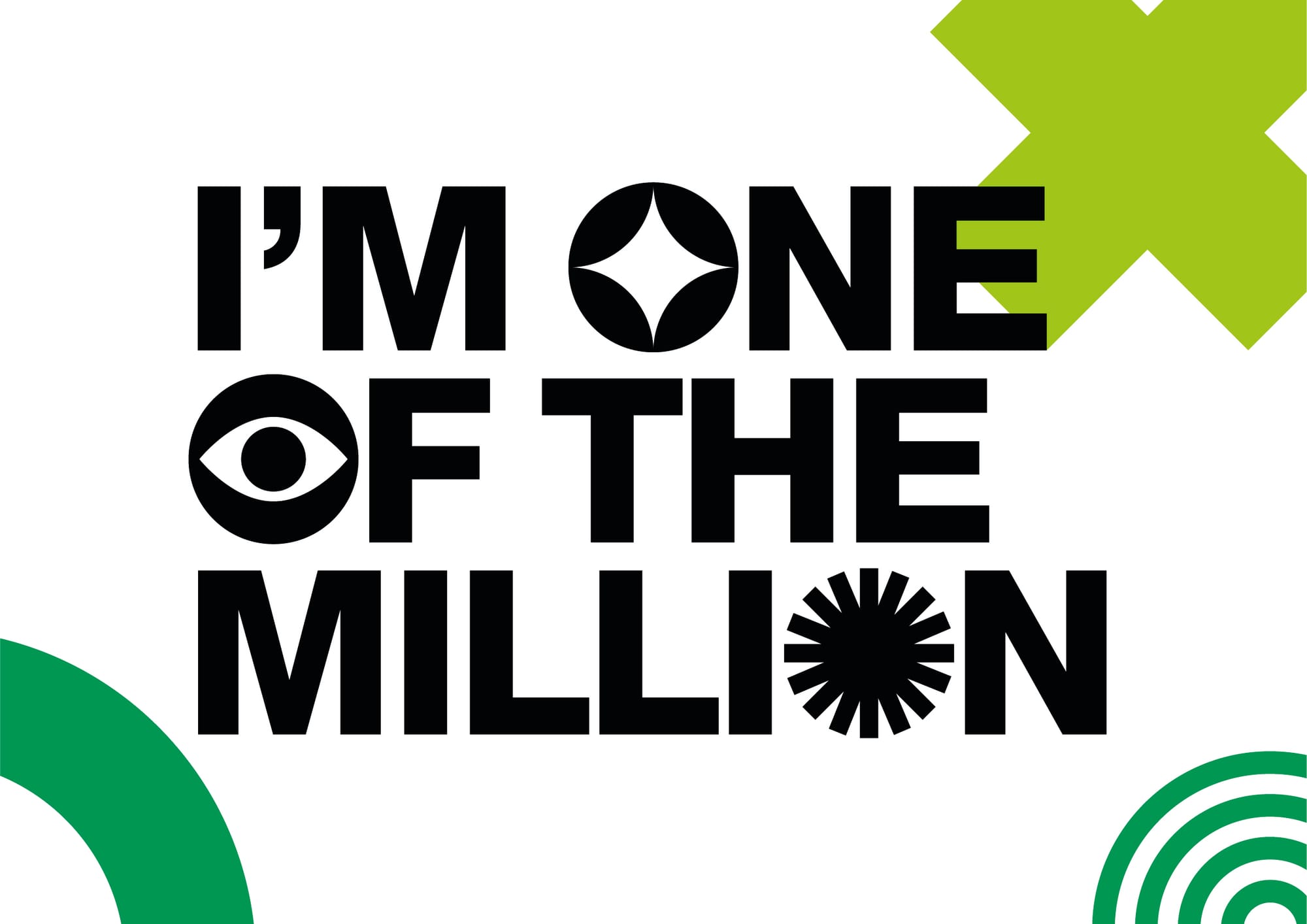
Design Council research reveals a critical gap between demand and supply: while 71% of designers expect demand for environmental design to rise, only 43% feel equipped to meet it.
In response, the Design Council has launched the Skills for Planet Mission, aiming to upskill one million designers in green design skills by 2030 and position the UK as a global leader in designing for the planet.
A major step toward this ambition is the launch of the Skills for Planet Blueprint, a landmark resource published this month. It defines the essential mindset, four foundational skills, six skill areas and 18 practical skills designers need to respond meaningfully to the climate and ecological crisis.
By providing a shared language and actionable guidance, the Blueprint helps dissolve the gap between green design and good design.
Skills for Planet Blueprint

You can read the full Skills for Planet Blueprint here, but to help you make sense of the Blueprint, here is URGE's short overview of the elements.
At the heart of all the skills is the Green Design Mindset, which requires a shift from human-centric to planetary-centric thinking.
There are four Foundational Skills designers hopefully already possess:
- Problem Framing
- Critical Thinking
- Co-creation
- Problem Solving
Building on these foundational skills are six Green Skill Areas:
- Regenerating Nature
- Embedding Circularity
- Eliminating Emissions
- Empowering Green Communities
- Influencing Green Behaviour
- Evaluating Green Impact
Definitions, case studies and three applicable skills for each area are available in the main document here - meaning there are 18 skills in total. These 18 skills span from eliminating emissions and regenerating nature via influencing green behaviours and empowering communities to preparing for future climate scenarios and evaluating long-term impact.
When assessing capability, there are four up-skilling tiers: Awareness, Development, Integration and Leadership. The assessment process must be iterative as up-skilling in one area can directly inform another.
Your support for Skills for Planet
The Mission and Blueprint are ambitious and will not succeed without the support of the design sector at large. If Design for Planet is to become part of everyday practice, the Skills for Planet Blueprint must be adopted by designers, design educators and those who employ designers.

URGE support for Skills for Planet
Earlier this year, URGE co-founder Alexie Sommer collaborated with the Design Council skills team and a select group of Design Council experts on the content of the 'Influencing Green Behaviour' skill featured in the Blueprint. In parallel, Alexie was working with the wider URGE team on a bespoke Green Skills programme for Casson Mann: designers of museums, exhibitions and interiors.
From July 2024, URGE worked with Casson Mann to develop a programme based on the existing knowledge in the design team. Reflecting on the process, Alexie comments: “The Blueprint is an essential reference for future green skills programmes. It will really help designers, educators and employers identify and agree on areas they need to explore further.”
Mapping the training delivered for Casson Mann to the Design Council’s Blueprint Skill Areas, we noted that we significantly addressed three of the six. This focus reflects a strategic prioritisation: tackling core challenges where we can build the most momentum quickly, specifically around eliminating emissions, evaluating green Impact and influencing green behaviour.
The Casson Mann sessions covering Eliminating Emissions and Evaluating Green Impact were:
- Carbon Literacy
- Materials Impact with Rob Thompson of Spot Materials
Those covering Influencing Green Behaviour were:
- Specification Writing
- Conversations with Clients
- Conversations with Contractors
The focus of the sessions reflects where the team felt there would be the most immediate impact and provides a foundation to build skills in the other areas.

One statement from the Blueprint stands out as both essential and challenging: “designers do not need to become specialists, but they do need to call upon specialist knowledge.” This raises an important question: do designers know what they don’t know, and do they have the policy, science, technology and waste networks to identify and involve the right experts, especially on projects where budgets are tight?
Organisations like URGE can support designers in this area and seek to create the conditions where specialist knowledge can be accessed, transferred between different projects and applied to different contexts.
Sign up for URGE Collective
A creative industries collective dedicated to system change
No spam. Unsubscribe anytime.

